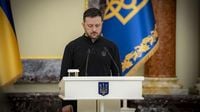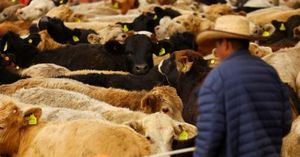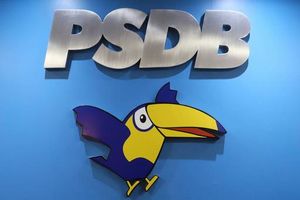Ukrainian President Vladimir Zelensky has taken significant action against a group of Russian cultural and sports figures, imposing personal sanctions on 20 individuals amid ongoing tensions between the two countries. The sanctions, formalized in a decree published on April 18, 2025, will last for a decade and are part of a broader strategy to address perceived support for the ongoing conflict in Ukraine.
The sanctions target a diverse group of personalities, including well-known artists and athletes. Among those affected are singer Yaroslav Dronov, known as SHAMAN, celebrated musician Alexander Rozenbaum, and actor Nikita Dzhigurda. The list also includes ballet dancer Nikolai Tsiskaridze, actress Irina Apeksimova, and fencer Sofia Velikaya. Other notable names include filmmaker Egor Konchalovsky, musician Garik Sukachev, and circus performer Yury Kuklachev.
According to the decree, the sanctions entail the freezing of assets in Ukraine, a ban on entering the country, and the revocation of state awards. These measures are designed to restrict the individuals' ability to engage in trade, acquire land, or establish media outlets within Ukraine.
In addition to the personal sanctions, Zelensky's decree also targets 57 Russian enterprises and three Chinese companies, along with 39 entrepreneurs. This comprehensive approach reflects Ukraine's ongoing efforts to counteract influences it deems detrimental to its national interests.
The decision to impose these sanctions has been met with criticism from Russian officials. Maria Zakharova, the official representative of the Russian Foreign Ministry, condemned the sanctions, referring to Zelensky as a "bloody clown" who has targeted "a kind and beloved clown, who generously gives joy to children." This comment highlights the ongoing animosity and the personal nature of the exchanges between the two nations.
Among those sanctioned, fencer Sofia Velikaya, skier Elena Vyalbe, and gymnast Nikita Nagorny have also been included, reflecting a broad spectrum of Russian talent in sports and arts that Ukraine has deemed supportive of the conflict. Dmitry Kuklachev, son of Yury Kuklachev, expressed that the sanctions against his father stemmed from his assistance to participants in the special military operation and their families.
Interestingly, some of the individuals on the sanctions list have ties to Ukraine. Vitaly Gogunsky and Nikita Dzhigurda were born in the territory of the former Ukrainian SSR, while ballet star Sergei Polunin obtained Russian citizenship in 2018. Polunin has recently expressed his desire to leave Russia, adding a layer of complexity to his situation.
These sanctions are not an isolated incident but part of a larger framework of measures taken by Ukraine to protect its sovereignty and cultural integrity. Earlier, on April 11, 2025, Zelensky enacted sanctions against Russian propagandists, further illustrating Ukraine's commitment to countering narratives it perceives as harmful.
As the geopolitical landscape continues to evolve, the implications of these sanctions on cultural exchanges and international relations remain to be seen. The long duration of the sanctions—set for ten years—indicates a firm stance by Ukraine and suggests that the tensions between the two nations are likely to persist.
In the wake of these sanctions, the affected individuals and their supporters have expressed concerns about the impact on their careers and personal lives. The restrictions not only affect their ability to work in Ukraine but also send a message to the international community regarding Ukraine's position on the conflict with Russia.
While Zelensky's government positions these sanctions as necessary for national security, the artistic and cultural ramifications could be profound. The arts often serve as a bridge between cultures, and such measures could hinder dialogue and understanding at a time when both sides could benefit from greater communication.
As the situation develops, it will be crucial to monitor how these sanctions affect the individuals involved and whether they will provoke a response from the Russian government. The ongoing conflict has already strained relations, and further actions may escalate tensions even more.
In conclusion, Zelensky's sanctions against Russian cultural figures represent a significant escalation in Ukraine's efforts to assert its sovereignty and counter perceived threats. As the conflict continues, the repercussions of these actions will likely reverberate through the cultural landscape, affecting not only those directly involved but also the broader relationship between Ukraine and Russia.








